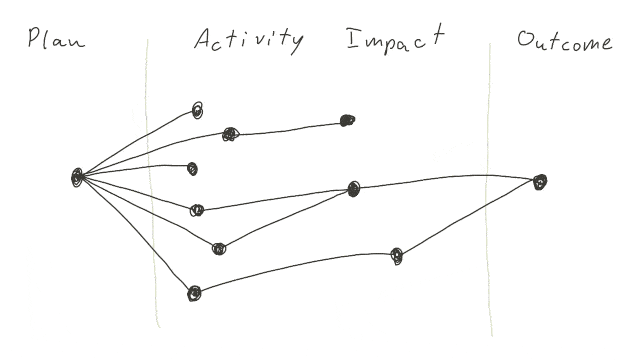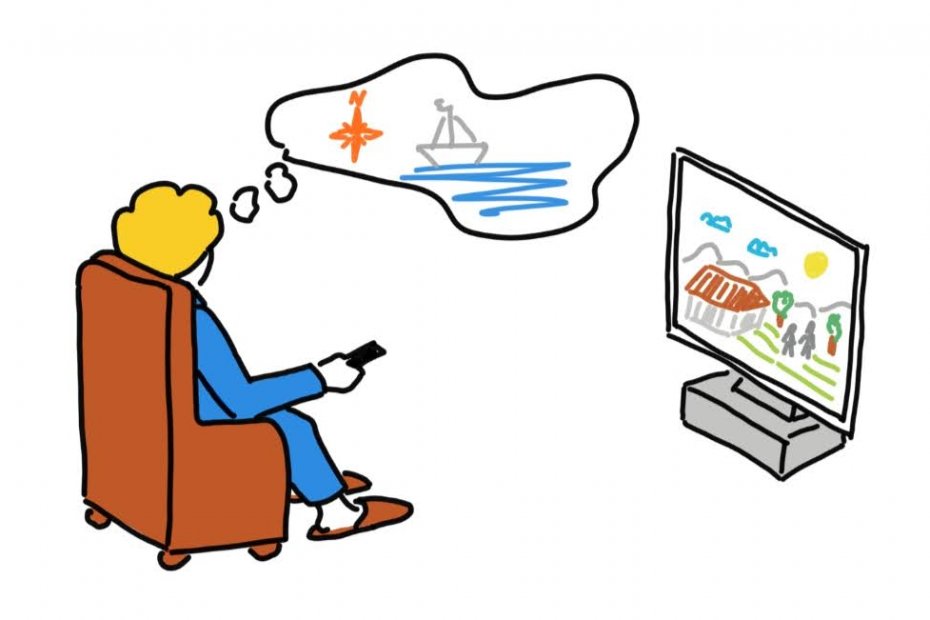You know your goals, you know why you would like to achieve them and you already have a plan? Great. Now, it is time to take action and to choose your activities.
Take Action
It is time to go out of the planning phase into the doing phase. Planning is important, but don’t over-plan. No need for perfection. Sometimes too much planning is just an excuse for procrastination. If you have a rough plan it is time to take action. You can always review and revise your plan on the go.
If you take action, obviously, two things are important.
- You need to know what action to take.
- You need to execute the tasks at hand.
If you are not absolutely certain about what action to take you might end up doing something, without any impact and without going into the right direction. If you know what to do and you don’t do it it has a similar effect.
Take The Right Action
Take the right action and you will inevitably get closer to your goal. But what are the right actions? Sometimes it is quite obvious. If your goal is to start a business, watching TV for eight hours every day will not bring you closer to this goal, unless you plan a film critique business, of course.
However, even if you have a well-elaborated plan your actions still might not be the right ones. That’s normal because we just cannot predict the future. If you have big goals there is always risk involved and there will always be wrong decisions that lead to wrong actions that lead to wrong results. Sure, this is an opportunity to learn, to stand up, revise your plan and go on. On the other side, it is certainly not too bad to make the right decisions and take the right actions in the first place.
Sometimes your “wrong decisions” might even lead to “good outcomes” if you are fine with adapting your goals slightly.
Activities And Impact
What are you doing right now? OK, you read this article. This is good (and supportive for reaching your goals). But, what did you do before this? What will you do after this and throughout your day?
It often helps to pause and to contemplate your current activities. Does this really help you with your goals? And this means your big goals or life goals, not just your day to day activities and tasks.
Do you have a book in your head and your goal is to bring it to paper and into the world? What activities will help you to do so? What habits, what environment and what resources do you need? And, what has the biggest impact? Obviously, sitting down writing for two hours every day will have a bigger impact than watching TV. So, why don’t you do it?
On the other hand, pure effort and working until exhaustion is no guarantee for a big impact on your goals. Thus, choose your activities wisely. Ideally, your activities have a clear impact on your goals and are rewarding.
Your decisions and actions transform your plan into an outcome.

You Decide
You have the power to choose your activities. There might be some must-do activities. For example, you might need your day job for a living. However, if you hate your job and only do some relaxing activities after work, chances are that the situation will never change.
If you have big goals or life goals you need to invest time, energy and effort. It is risky and it often is exhausting. But it is still much better than spending your whole life in a hamster wheel.
And, your past activities do not matter. If you spend five years and hard work with your law studies and then you recognize that law will not make you happy and that your life goal is to rescue wild animals, then you decide. Will your life be more fulfilled in a law firm or in an animal rescue center?
Whatever you do, it will have an impact on your goals and on your life. Some activities support your goals, others don’t. Of course, you still need to keep your balance. If you work for your goals day and night, for years and you don’t see family and friends, with no time to relax, it is too much and not worth it. The risk is higher than the potential gain and a heart attack or burnout is certainly not supportive for your goals.
Keep Your Balance
Yes, relaxation, exercise, meditation, enough sleep, good food and an active social life surely have a positive impact on your goals because this helps you to recharge your mental and physical batteries.
You can also choose your leisure activities to support your goals. For example you can read books about your goal’s topic, listen to podcasts instead of music on your commute or meet like-minded people.
Develop a habit to choose and plan your activities wisely. Your big goals work as a compass here. This is crucial because watching TV every day quickly becomes a habit. But, working on your goals every day can become a habit, too.
Now It Is Your Turn
What activities support your goals, what activities don’t? Make a list and go through all your weekly activities. For each activity assign a number from -5 (very negative impact on your goal) to +5 (very positive impact on your goal) about how helpful the activities are?
Here comes a quick example.
| Activity | Impact on my goal |
| Watching TV | -5 |
| Exercise | +2 |
| Writing on my book | +5 |
This exercise will give you an idea about what activities to keep, to extend or to reduce. You can then plan your week accordingly.
Make it a habit to pause from time to time throughout your day to think about how helpful your current activity is for reaching your goals.
